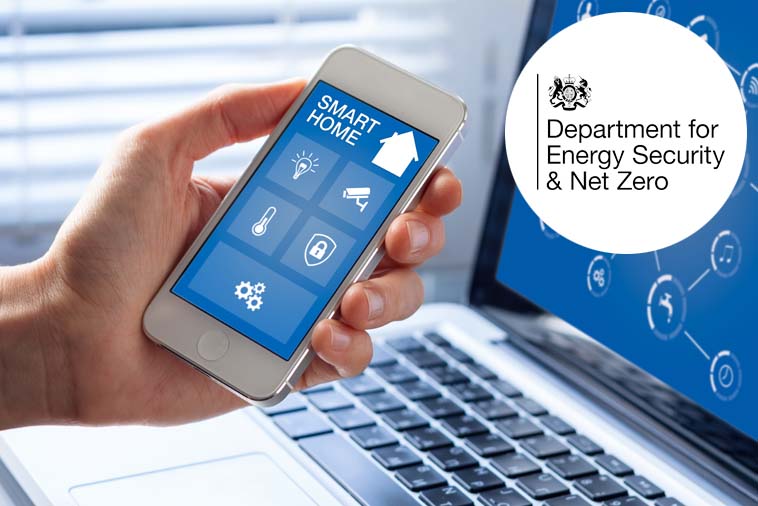The DESNZ (The Department for Energy Secuirty and Net Zero) is a government department previously known as the Department for Business, Energy and Industry Strategy (BEIS) that set up a £65m Flexibility Innovation Programme,i and seeks to enable large-scale widespread electricity system flexibility through smart, flexible, secure, and accessible technologies and markets. The Programme aims to fund innovation across a range of key smart energy applications, with new activities being launched over the coming year. The Flexibility Innovation Programme is part of the Department of a £1 billion Net Zero Innovation Portfolio (NZIP)ii. It forms a substantial part of the (at least) £100m funding for energy storage and flexibility challenges set out in the Prime Minister’s ten point plan for a green industrial revolution.
The Flexibility Innovation Programme will run until the 31st of March 2025. Part of that Programme will focus on an integrated approach to enabling flexibility on the grid, focusing on interoperable domestic and small-scale non-domestic demand side response (DSR) through two technical frameworks. This innovation initiative will be delivered by the Interoperable Demand Side Response (iDSR) Programme.
The technical frameworks will be applied to satisfy the core principles set out in the Transitioning to a Net Zero Energy System – Smart Systems and Flexibility Plan 2021.
| Principle | Description |
|---|---|
| Interoperability | The ability of an energy smart appliance (ESA) to be operated by any authorised DSR Service Provider (DSRSP) for DSR services. |
| Data privacy | The secure transmission and storage of data on the device or with any controlling party. |
| Grid-stability | The prevention and mitigation of negative impacts to the energy system caused by inappropriate operation of ESAs. |
| Cyber-security | The appropriate protection of an ESA, systems and data from unauthorised access to reduce the risk of cyber attack |
The Challenge
The work under iDSR Programme seeks to develop DSR solutions, test and demonstrate how DSR services can be delivered by two different technical frameworks, according to:
- Publicly Available Specification (PAS) 1878 and the principles of PAS 1879
- GB smart metering system in accordance with the Standalone Auxiliary Proportional Controller (SAPC) specification.
The objective of proving that the technical frameworks are the right approach to meeting the core principles in the future domestic DSR market whilst unlocking the benefits to consumers; the learning and finding of this programme will support the policy development for a Smart, Secure Electricity System.
The Solution
The iDSR Programme is made up of a number of eight development projects with the objective of developing DSR Solutions according to the two technical frameworks. Those DSR Solutions will then be tested by independently procured testing service providers across two phases of testing responsible for 1) laboratory testing for conformance and performance and 2) demonstration of application DSR solutions in a real world setting.
Engage established a consortium that brings together three industry leading and complementary organisations with the specialist skills, knowledge and experience required to deliver the requirements. Engage, as the lead party, in conjunction with the Nederlands Meet Institute (NMi) and SMS PLC (SMS). Through a competitive procurement Engage, was contracted to undertake the Laboratory Conformance and Performance Testing of applicable energy smart appliances. The project was initiated in September 2022, mobilising both operationally and commercially, switching into delivery mode by the year and meeting our first key milestone at the end of January to develop Revision 1 of our scheme designs.
In the delivery of this contract, we are designing a conformance and performance testing scheme for DSR Solutions based on Publicly Available Specification (PAS) 1878, assuring conformance testing results for GB Smart Metering submitted solutions and designing a performance testing scheme for both mechanisms. A detailed implementation plan for testing is in development, including executing the tests and reporting on the outcomes. The testing facility is a large scale, existing smart meter UK testing facility in Bolton. The facility has significant optionality and space with the capability to include all ESA types, generation, and demand side replication; its design is well underway with the supporting software required to undertake conformance testing.
All of the above requirements will be robustly project managed by Engage, complemented by an ISO9001 compliant Quality Management System, ensuring quality product creation, effective governance and efficient delivery and interactions with product developers within the delivery team and with DESNZ. An effective technical liaison engagement approach has been developed for the engagement of all development projects. Within this engagement with all eight development projects, Engage has taken a leading role in implementing collaboration agreements across all projects to support the Programmes need for collaboration across a very complex stakeholder environment.
The Outcome so Far
The project has successfully mobilised, is operating to plan and budget and is effectively engaged with DESNZ, the development project and the 2nd independent testing project. Our initial milestones have been met, and an early version of our scheme and test facility designs are taking shape. Engage has successfully led the engagement to enter into collaboration agreements with all projects, implementing a formal mechanism to ensure collaboration takes place, specifying information to be exchanged and joint activities whilst maintaining confidentiality. The project has many challenges ahead in the remainder of Phase 1, which will see the Testing Scheme and facility designs mature before being implemented and test plans executed within Phase 2.
i Flexibility Innovation Programme – GOV.UK (www.gov.uk)
ii Net Zero Innovation Portfolio – GOV.UK (www.gov.uk)
